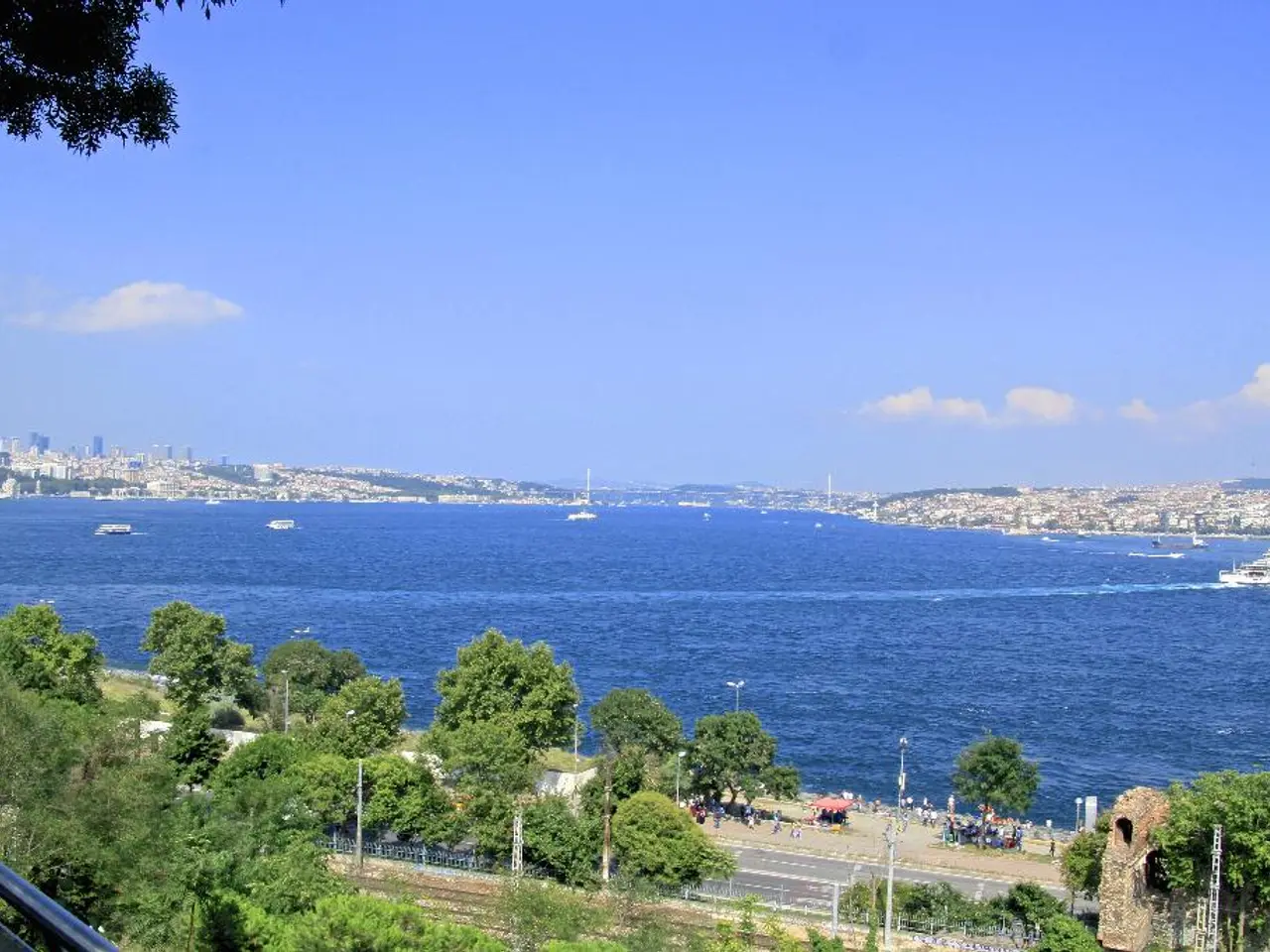Conflict erupts in an Algerian town over the prohibition of casual clothing, including Bermuda shorts and beachwear.
In the picturesque Algerian beach town of Chetaibi, a recent controversy has arisen over a dress code, shedding light on the country's ongoing struggle to balance religious conservatism and cultural identity with modernisation and globalisation.
The mayor of Chetaibi, a scenic town on Algeria's Mediterranean coastline with a population of 8,000, issued a decree earlier this month banning beachgoers from wearing Bermuda shorts, labelling them as indecent beachwear. However, the decree sparked immediate backlash, particularly from tourists, as Bermuda shorts are a common swimwear choice for men. The restriction was seen as a clash between local conservative values and more liberal or tourist-friendly customs.
The controversy mirrors deeper societal tensions in Algeria regarding religion, identity, and public space. Algeria is a predominantly Muslim country where traditional and conservative views often shape public norms, particularly concerning modesty and dress codes. The mayor’s decision to ban Bermuda shorts symbolises an assertion of religious and cultural identity emphasising modesty, which contrasts with more secular or international norms brought by tourism and modern leisure practices.
The episode highlights ongoing debates in Algeria about how religion and cultural identity influence regulations and everyday life, especially in public and recreational settings like beaches that attract both locals and foreigners. Seasonal tourism is a cornerstone of the local economy in Chetaibi, and the controversy could potentially undermine these ambitions.
Moreover, the expansion of conservative influence in Algeria could be a concern for the country's tourism sector. Conservative groups in Algeria are exploiting the country's economic troubles to expand their influence, potentially undermining Algeria's ambitions to grow its tourism sector.
This struggle is not unique to Chetaibi. Islamist parties play a large role in daily life in Algeria, filling social and moral voids. The conflict in Algeria that killed an estimated 200,000 people throughout the 1990s was between political Islam and Algeria's military-backed secular state, demonstrating the deep-rooted nature of these tensions.
In summary, the bathing suit controversy in Chetaibi is more than a dress code issue; it underscores Algeria's broader societal struggle to balance religious conservatism and cultural identity with globalisation, secularism, and evolving public norms regarding personal expression in shared spaces. The incident serves as a reminder of the complexities Algeria faces as it navigates its path towards modernity while preserving its cultural values and identity.
- Algeria's ongoing attempt to reconcile religious conservatism, cultural identity, modernization, and globalization is also evident in the debate surrounding art, as traditional Algerian artists face competition from more modern or Westernized creators.
- Businesses in the home-and-garden sector could be affected by the expansion of religious conservatism in Algeria, as some conservative groups advocate for stricter regulations on clothing and lifestyle choices that may limit sales of certain products.
- The news of the dress code controversy in Chetaibi has caused ripples in the international community, with many expressing opinions on social media platforms and travel forums about the impact on their future plans to visit the region.
- The political landscape in Algeria remains complex, as politicians must navigate issues of economic crisis, public opinion, and religious and cultural tensions when formulating policies, such as those regarding tourist-friendly regulations.
- The growing influence of conservative groups in Algeria's politics has prompted some to question the future development of the country's lifestyle sector, particularly in urban areas popular with tourists seeking diverse cultural experiences and modern amenities.




